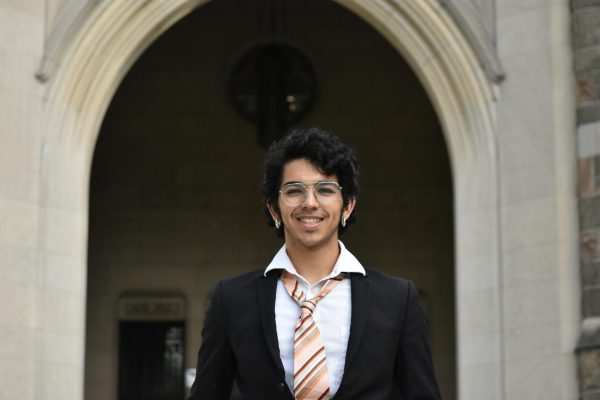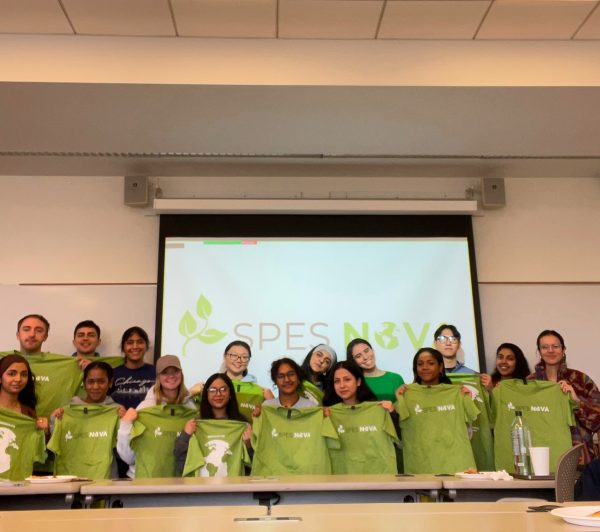Campus Ministry Promotes a “Swipe Out Hunger” Initiative to Reduce Food Scarcity
On Oct.14, Fordham Campus Ministry sent an email newsletter to all students with details about its program “SWIPE Out Hunger.” The program, meant to combat food scarcity at Fordham, asks people to donate guest meal swipes to food-insecure students on campus.
Students are able to fill out a Guest Meal Donation Form, providing Campus Ministry with details about the student’s Fordham account and the number of guest meals they want to donate. Campus Ministry collects the donated meal swipes and manages their distribution to students in need.
The number of guest meal swipes students can donate depends on the meal plan campus residents have purchased. At Rose Hill, students with Block 200 or Block 225 can donate up to four guest meals, students with Block 250 can donate up to five guest meals and students with an unlimited meal plan can donate up to eight guest meals.
In the fall of 2019, Campus Ministry launched its first attempt at minimizing food scarcity on campus, though at that point it was not named “SWIPE Out Hunger.” According to Rev. Jose Luis (Lito) Salazar, S.J., the executive director of Campus Ministry, the group had to halt the drive during the COVID-19 pandemic. With Fordham gradually beginning to return to pre-coronavirus operations, Campus Ministry decided it was time to bring the program back with a new name.
“College hunger is real,” said Salazar. “You may be sitting in class or studying in the library next to someone who goes hungry regularly, not by choice but by family circumstances. But they will never talk about it, and you wouldn’t want to pry. Why not do something about food scarcity on campus and donate guest meals to alleviate hunger on campus?”
Although the two are unrelated, the name of Campus Ministry’s program is reminiscent of the national charity nonprofit Swipe Out Hunger. According to its webpage, the nonprofit promotes “on-campus solutions, policy and advocacy pathways and student empowerment practices to address student hunger.”
Campus hunger is a common problem found on many college campuses across the United States. In a collaborative report from the College and University Food Bank Alliance, the National Student Campaign Against Hunger and Homelessness, Student Government Resource Center and Student Public Interest Research Groups, results showed just how serious food insecurity is among college students.
According to the report, “Data suggests that a large segment of the student population [in the United States] — nearly 50% — may be food insecure, and that life for these food-insecure students is full of hardship and educational roadblocks.”
The report also outlines the different types of economic struggles that many students face.
“This study suggests that the majority of food insecure students are struggling to make ends meet despite working or reaching out for assistance,” the report states. “75% report receiving some form of financial aid, 56%report working while going to school and 61%report taking advantage of benefit programs like SNAP.”
Published in 2016, the report does not take into account some of the major economic struggles students are currently facing, especially as the population begins to recover from the financial hardships of the COVID-19 pandemic.
In an article published by Inside Higher Ed, the links between COVID-19 and food insecurity are clear. As the article states, “Since the start of the pandemic, 38% of students have regularly missed meals because they’re less hungry or stressed.”
The National Education Association (NEA) elaborates on these links, explaining that “many university students who worked in restaurants or local shops, or as babysitters, dog walkers … were unemployed this year. Many of their parents also lost their jobs — or lives.” The NEA also points out that Congress’ COVID-19 relief legislation was not fully taken advantage of because “many students were not aware of it.”
Salazer said he is also concerned about how the pandemic has impacted food scarcity. “The pandemic both disclosed and exacerbated the systemic social inequities, like access to food and health care,” he said. “We can do something about this right where we are. Donating to emergency student funds and meal swipes that benefits individuals are short-term charitable works. Advocacy to change the systems that are at the root of the widespread problems are the work of social justice.
“Both are necessary actions of love in response to the God who loves us first,” said Salazar.

Sebastian Diaz is a senior from Chapel Hill, N. C. who is double majoring in journalism and film. After starting as a news reporter for The Fordham Ram...











































































































































































































